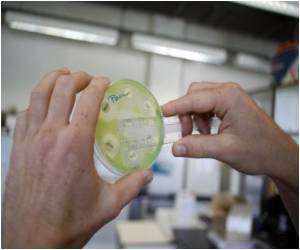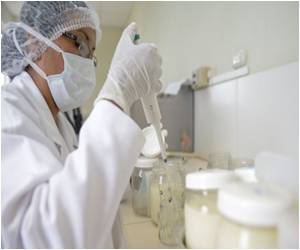The system that allows the sharing of genetic material between bacteria - and therefore the spread of antibiotic resistance has been uncovered by researchers.

As type IV secretion can distribute genetic material between bacteria, notably antibiotic resistance genes, the mechanism is directly responsible for the spread of antibiotic resistance in hospital settings.
It also plays a crucial role in secreting toxins in infections - causing ulcers, whooping cough, or severe forms of pneumonia such as Legionnaires' disease.
The work, led by Professor Waksman at the Institute of Structural and Molecular Biology (a joint Birkbeck/UCL Institute) and funded by the Wellcome Trust, revealed that the type IV secretion system differs substantially from other bacterial secretion systems, in both its molecular structure and the mechanism for secretion.
Using electron microscopy the team were able to reconstruct the system as observed in the bacteria E. coli. They saw that the mechanism consists of two separate complexes, one in the outer membrane of the cell, and the other in the inner membrane, which are connected by a stalk-like structure that crosses the periplasm - the space between the two membranes. The complexes at both the inner and outer membranes form pores in the membrane, via which substances can be secreted.
Understanding the structure of the secretion system will help scientists uncover the mechanism by which it moves substances across the inner and outer membranes. It could eventually help scientists develop new tools for the genetic modification of human cells, as the bacteria could act as a carrier for genetic material, which could then be secreted into cells.
Advertisement
Source-ANI















